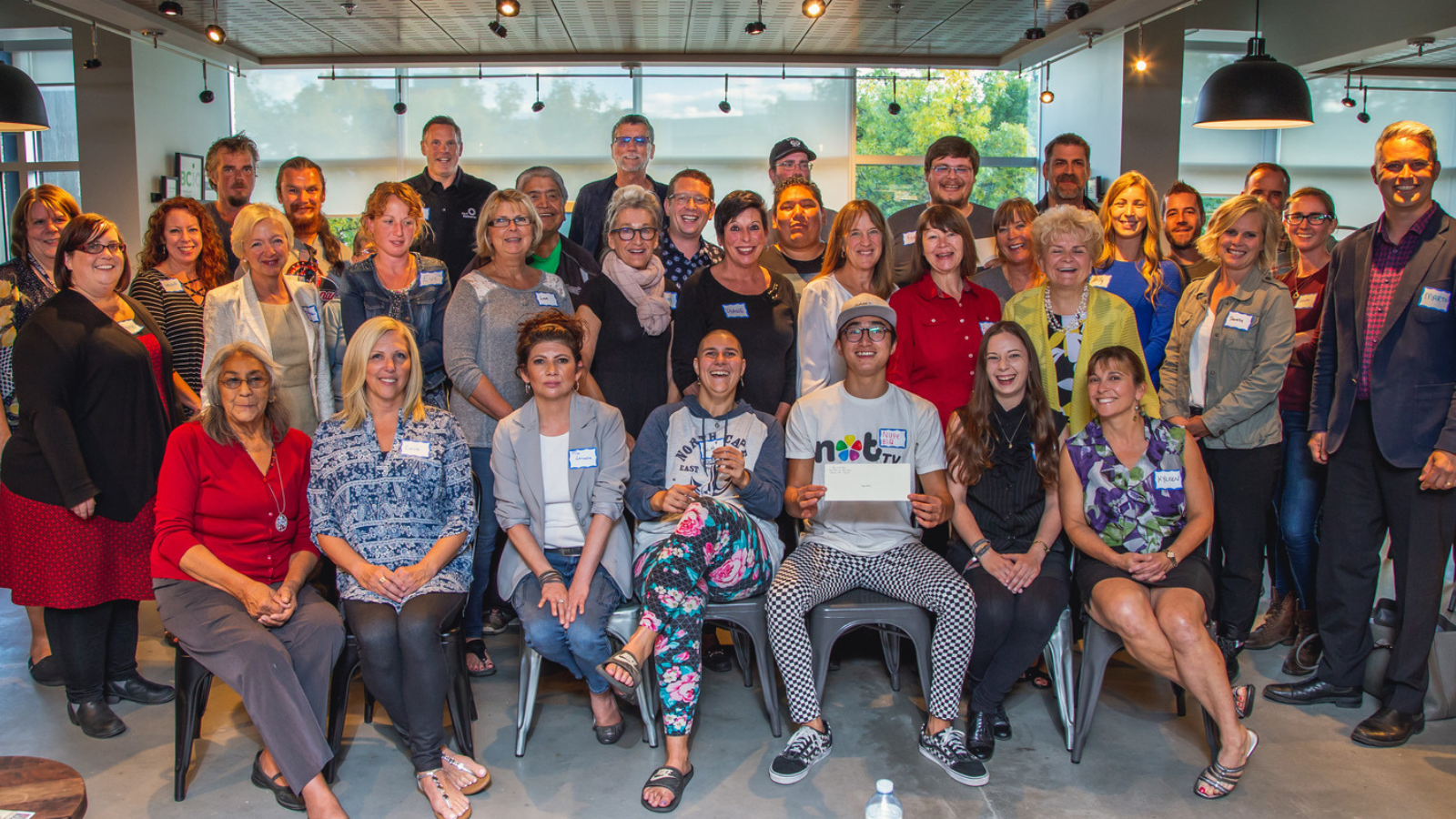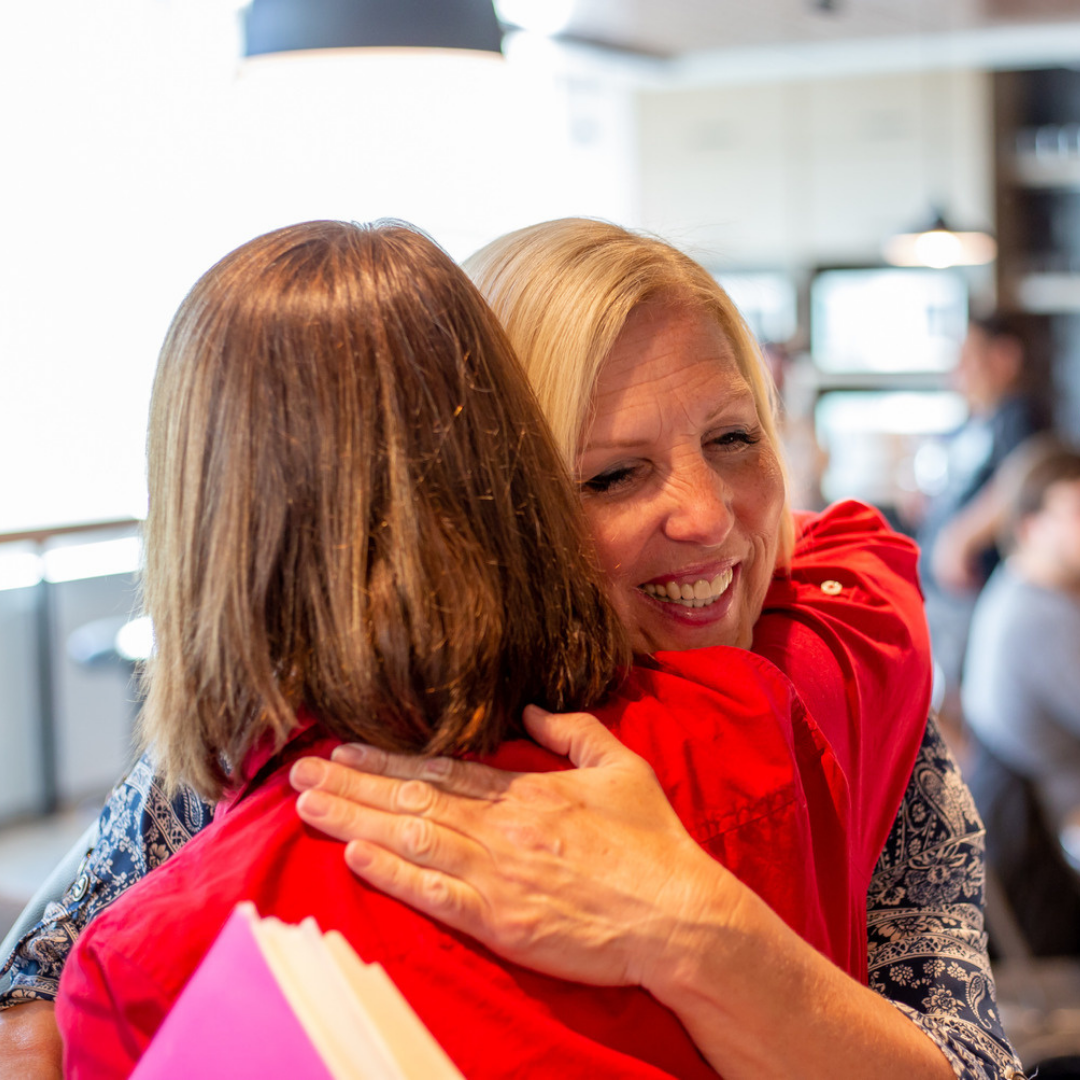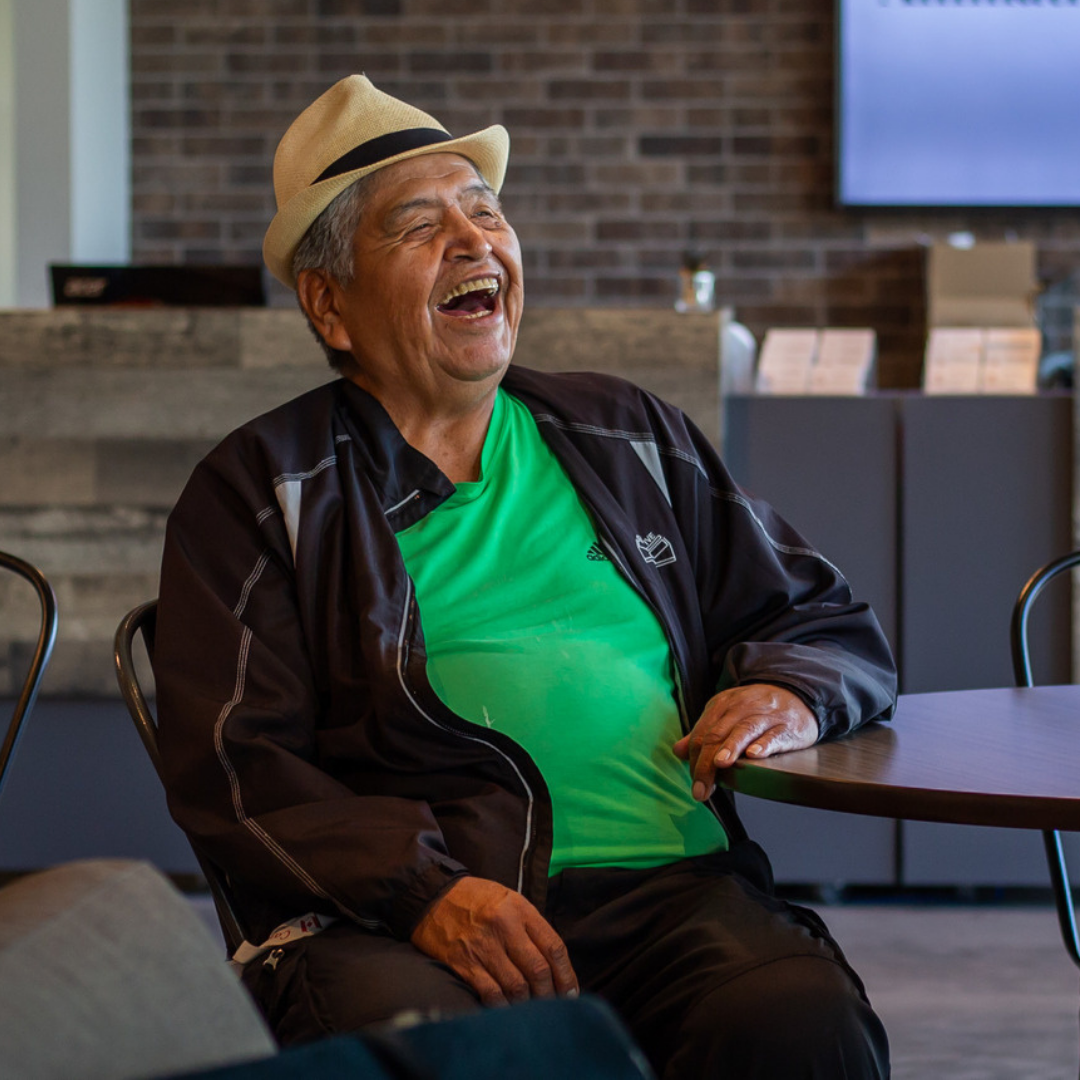‘Peers provide insight into the systemic barriers that impact people’s journey out of homelessness and are critical in designing person-centred systems that mitigate and end the experience of homelessness.’ Working peer experience into the foundation of its homelessness strategy, this Built for Zero Canada community aims to end chronic homelessness by 2024. This blog is a part of our Bright Spot series highlighting outstanding work in ending homelessness happening across Canada.
 When Kelowna laid the groundwork for its Journey Home Strategy to End Homelessness, one of the key components was equitable community engagement and embedding guidance from people with lived experience (PWLE) of homelessness from the get-go.
When Kelowna laid the groundwork for its Journey Home Strategy to End Homelessness, one of the key components was equitable community engagement and embedding guidance from people with lived experience (PWLE) of homelessness from the get-go.
Completed two years ago, the community-driven strategy’s goal is to achieve functional zero chronic homelessness by 2024. The strategy is grounded in the belief that everyone has the right to safe and dignified housing and supportive care. The strategy received input from 2,000 points of engagement and resulted in the formation of the Central Okanagan Journey Home Society, PWLE-led groups, and an aim to create a system that houses everyone.
“Recognizing that people with lived experience of homelessness in the local context have the best understanding of the issues, challenges, gaps, and of the solutions was key,” says Sue Wheeler, City of Kelowna, Social Development Manager. “As the participants in Journey Home that had lived experience reminded us, not being included, and not having a voice is what they experience every day.
“Such an approach would just reinforce the stereotypical and stigmatizing approaches of the past.”
It was decided from the very beginning of the strategy process that lived experience voices would be foundational to all conversations and decisions. The task force behind the strategy, which included two PWLE, was also linked to the Lived Experience Circle on Homelessness (LECoH). A PWLE was hired to convene LECoH. Participants were reimbursed for their participation and expertise, bus tickets were available, and the group shared a meal each meeting.
“Understanding barriers at the local level is important,” Sue says. “One of my biggest takeaways from working with LECoH is that stigma and discrimination are deeply embedded in our communities and structures, and our daily perceptions are influenced by them.
“The best way to create change is to provide an opportunity for people to become aware of their perceptions on a personal level.”
 Society continues the work
Society continues the work
The Central Okanagan Journey Home Society (COJHS) was formed to take on homeless systems planning, funding coordination, and building partnerships with key groups to see the strategy to end homelessness through. And it’s continued to integrate peer supports in all areas of service delivery across the community.
Peers with lived experience provide guidance and influence on all aspects of the integration of the community strategy in the organization and across community agencies, and the City of Kelowna. LECoH continues to be an advisory group to Journey Home, as well.
“We believe that people with lived and/or living experience of homelessness are most apt in developing solutions to mitigate, address and end homelessness,” says Stephanie Ball, COJHS, Executive Director. “Peers provide insight into the systemic barriers that impact people’s journey out of homelessness and are critical in designing person-centred systems that mitigate and end the experience of homelessness.”
LECoH has board level involvement at the society and provides continuous feedback through all community tables, according to Stephanie. They also engage with people currently experiencing homelessness locally and provide real-time feedback on the successes and challenges of service delivery—they inform community decisions around service design and transformation.
“It is essential that peers are recognized as a pivotal role in influencing the system, and not embedded in a tokenistic manner,” Stephanie says.
Lived Experience Circle on Homelessness
LECoH is currently made up of five members whose objective is to be a voice for people experiencing homelessness. According to Elaine, a member of LECoH, they do this through engaging with people and asking them questions, then taking that information to the relevant service or government organization.
“In 50 years of this work, if the voice of the consumer is not heard, the program seldom works to potential,” Elaine says. “The experts are the consumers.”
The group’s objectives are to continue to advocate for the desired outcomes of the Journey Home Lived Experience consultation process, provide peer support and support public awareness to reduce stigma, and inform the organizational development of the homeless serving system.
For the group, it’s about ensuring that the service matches the needs of the client.
“The understanding that the end user of a social service has insight into their needs and can provide knowledge if given the opportunity, needs to permeate every social service out there,” says G, another LECoH member. “I am proud of the members who work hard to make a difference in the day–to–day lives of their peers and the community as a whole.”
The group is also responsible for creating and guiding Paid Employment Opportunity for People with Lived Experience (PEOPLE Employment Services), in collaboration with Urban Matters, Journey Home Society and the City of Kelowna.
PEOPLE was created to honour and pay PWLE for their valuable contribution to the efforts of ending homelessness. Since April 1, the group has seen 36 people get hired. Currently, 22 are working at five different sites, including motel housing, staffing at hygiene stations, and in harm reduction efforts.
“I go to vet at encampments, shelters, supportive housing units and anywhere where lived experience folks are,” says Dhorea Ramanula, PEOPLE’s Executive Director. “We then offer paid training.”
People then go through different trainings, ranging from reconciliation to Naloxone, and then have access to a coach. They also receive support throughout the process.
“We are changing stigma,” she says. “We’re getting folks into valuable work where their voices can be heard, and they can make a difference.”
Peer work in harm reduction
Another peer group working in the community is the Knowledging All Nations & Developing Unity (KANDU), which was formerly known as the Kelowna Area Network of Drug Users. The group formed in September 2019 and has since prospered into a very unique peer–led group that empowers and supports its group members.
Heather Spence and Josh Pelletier, KANDU coordinators, believe that it is imperative to meet peers where they are at and to provide them with peer support at an emotional, physical and mental level. They also provide safe clean harm reduction supplies as well as advocacy, referrals, training and employment opportunities. They just launched a 24/7 phone line, which provides information/support (778-594-1716). They also meet weekly for peer support group as well as drug user support. Everyone is welcome, including non-drug user allies.
 Peer-led outcomes that were transformational
Peer-led outcomes that were transformational
Early on in the Journey Home Strategy, LECoH and service providers identified ‘Red Zones’ as a major concern. A red zone is a geographical area where spatial restrictions are placed on people that have intersected with the justice system. The red zone defined area in Kelowna, though, was the same area where most services supporting people experiencing homelessness were located.
Now, one of the strategy’s recommendations is to support innovative solutions to address criminalization of homelessness. The process led to a broader discussion on the intersection between homelessness and the justice system.
Thanks to those hard conversations between peers, the sector, RCMP, bylaw, and security, transformational strategy outcomes include: a provincial commitment to an Integrated Community Court designed to break the cycle of criminal justice involvement; a new collaborative, risk-driven community safety and well-being initiative focused on prevention, known as Kelowna Outreach and Support Table, which identifies people at-risk and connects them to services; and bylaw works closely with outreach workers to ensure people sheltering outside get connected to services and have a chance to get their basic needs met.
LECoH is also accessed by bylaws and other community agencies to garner input to operational decisions or program development on an ongoing basis, which they do by engaging people currently experiencing homelessness to get their input.
In the end, the City of Kelowna is gaining on its goal to end chronic homelessness because of its engagement with peers. Sue Wheeler says about the process, “In my mind, the biggest challenge in creating community change is for people to learn that challenging their perceptions takes work and needs ongoing engagement and attention.
“I believe that these conversations are more powerful when they are led by people with lived experience.”
For further information and resources see the Peers and Lived Experience page on the BFZ-C website and check out the new Canadian Lived Experience Network
This blog is a part of our Bright Spot series highlighting outstanding work in ending homelessness happening across Canada.
